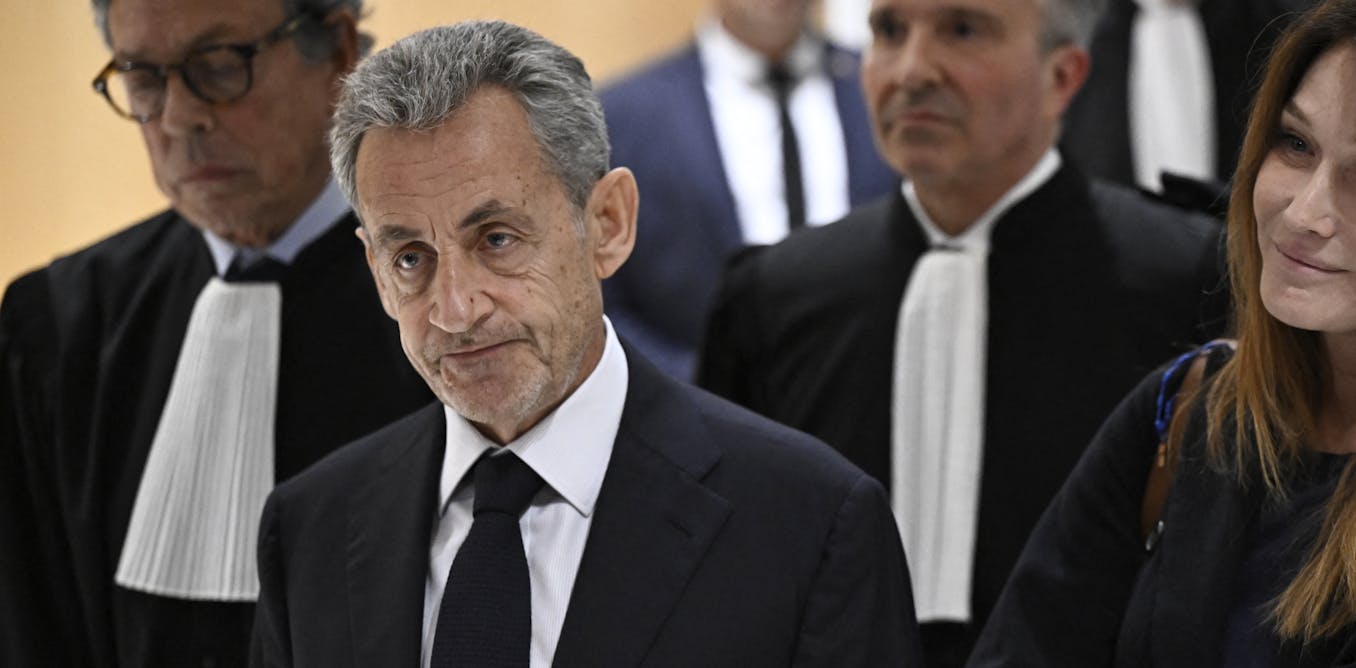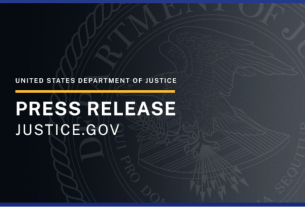Former French President Nicolas Sarkozy has been found guilty of criminal conspiracy in a case related to the Libyan funding of his 2007 presidential campaign. Sentenced to five years in prison, he is due to appear in court on 13 October to learn the date of his incarceration. The unprecedented ruling marks a turning point in the practices of the French justice, which has gradually freed itself from political power. It also enshrines the Republican principle of full and complete equality of citizens before the law, which was proclaimed in 1789 but long remained theoretical, writes Vincent Sizaire.
As might be expected, the guilty verdict against Nicolas Sarkozy on Thursday 25 September over the transfer of millions of euros of illicit funds from the late Libyan leader Col Muammar Gaddafi to finance his 2007 election campaign, drew anger from a large part of the political class.
It’s perfectly legitimate to argue against the ruling on the grounds that is unfair and unfounded. This applies first and foremost to the defendants, who have every right to appeal the judgement. However, the context in which these outcries take place is a political tinderbox: indeed, in April, the leader of the far-right National Rally, Marine Le Pen, was already sentenced to a five-year ban on running for public office after she was found guilty of helping to embezzle €2.9m (£2.5m) of EU funds for use by her party. Following on its heels, Sarkozy’s latest sentence provides yet another opportunity for a large section of the ruling classes to stir controversy over what the French describe as the “government of judges” and others would dub “juristocracy”.
Sarkozy will soon be the first post-war president of France to be imprisoned
Admittedly, the sentence may seem particularly severe: a €100,000 fine, five years of ineligibility and, above all, five years’ imprisonment with a deferred warrant of arrest which, combined with provisional enforcement, forces the convicted person to begin serving their prison sentence even if they appeal.
But if we take a closer look at the offences at play, the penalties hardly appear disproportionate. The facts are undeniably serious: organising the secret financing of an election campaign with funds from a corrupt and authoritarian regime, Libya – whose responsibility for an attack on an airplane that killed more than 50 French nationals has been recognised by the courts – in return for championing it on the international stage.
Given the maximum sentence is ten years in prison, the penalty can hardly be considered as too harsh. But what is being contested is the very principle of the conviction of a political leader by the courts, which is seen and presented as an intolerable attack on the institutional balance.
If we take the time to put this into historical perspective, however, we see that the judgments handed down in recent years against members of the ruling class are, in fact, part of a movement to liberate the judiciary from other powers, particularly the executive. This emancipation finally allows the judiciary to fully enforce the requirements of the republican legal system.
Equality of citizens before the law, a republican principle
It should be remembered that the revolutionary principle proclaimed on the night of 4 to 5 August 1789 was that of full and complete equality before the law, leading to the corresponding disappearance of all special laws – ‘privileges’ in the legal sense of the term – enjoyed by the nobility and the high clergy. The Penal Code of 1791 went even further: not only could those in power be held accountable before the same courts as other citizens, but they also faced harsher penalties for certain offences, particularly those involving corruption.
The principles on which the republican legal system is based could not be clearer: in a democratic society, where every person has the right to demand not only the full enjoyment of their rights, but also, more generally, the application of the law, no one can claim to benefit from a regime of exception – least of all elected officials. It is because we are confident that their illegal actions will be effectively punished, in the same way as other citizens and without waiting for a highly hypothetical electoral sanction, that they can truly call themselves our representatives.
When the law favored the powerful
For a long time, however, this requirement for legal equality remained largely theoretical. Taken over and placed in a more or less explicit relationship of subordination to the government during the First Empire (1804-1814), the judiciary remained under the influence of the executive at least until the middle of the 20th century. This is why, until the end of the last century, the principle of equality before the law came up against a singular privilege of ‘notability’ which, except in exceptional situations or particularly serious and highly publicised cases, guaranteed relative impunity for members of the ruling classes whose criminal responsibility was called into question.
The situation only began to change following the humanist awakening of the liberation in 1940s. From 1958, magistrates were recruited by open competition and benefited from a relatively shielded status, as well as a dedicated school, the National School for the Judiciary. The latter gradually took up a demanding code of ethics, encouraged in particular by the recognition of judicial trade unionism in 1972. A new generation of judges emerged, who now took their mission seriously: to ensure, in complete independence, that the law was properly enforced, regardless of the background of those in the dock.
Bernard Tapie, Jacques Chirac, Nicolas Sarkozy …
It was in this context that something that had been unthinkable a few decades earlier came to pass: the prosecution and conviction of prominent figures on the same basis as the rest of the population. From the mid-1970s, the movement gained momentum in the following decades with the conviction of major business leaders, such as Adidas and football tycoon Bernard Tapie, and then national political figures, such as former conservative minister, Alain Carignon, or the Lyon mayor and deputy, Michel Noir. The conviction of former presidents of the Republic from the 2010s onwards – Jacques Chirac in 2011, Nicolas Sarkozy for the first time in 2021 – completed the normalisation of this trend or, rather, put an end to the democratic anomaly of giving preferential treatment to elected officials and, more broadly, to the ruling classes.
This movement, which initially stemmed from changes in judicial practices, was also supported by certain changes to French law. One example is the constitutional revision of February 2007, which enshrines the jurisprudence of the Constitutional Council according to which the President of the Republic cannot be subject to criminal prosecution during his term of office, but which allows proceedings to be resumed as soon as he leaves office. We can also mention the creation, in December 2013, of the National Financial Prosecutor’s Office, which, although it does not enjoy statutory independence from the executive branch, has been able to demonstrate its de facto independence in recent years.
Any talk of “judicial tyranny” is intended to take aim at this historical development. This rhetoric seeks less to defend the sovereignty of the people than that of the oligarchic rulers.



